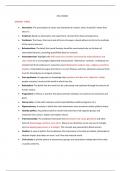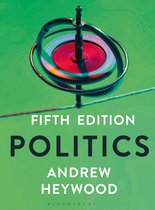Summary
Summary of Introduction to Political Science Part 2- Final
- Course
- Institution
- Book
Summary of the second part of the introduction to political science course (IPOL) after the midterm. This summary helped me achieve a grade of 8.2 on the final.
[Show more]




